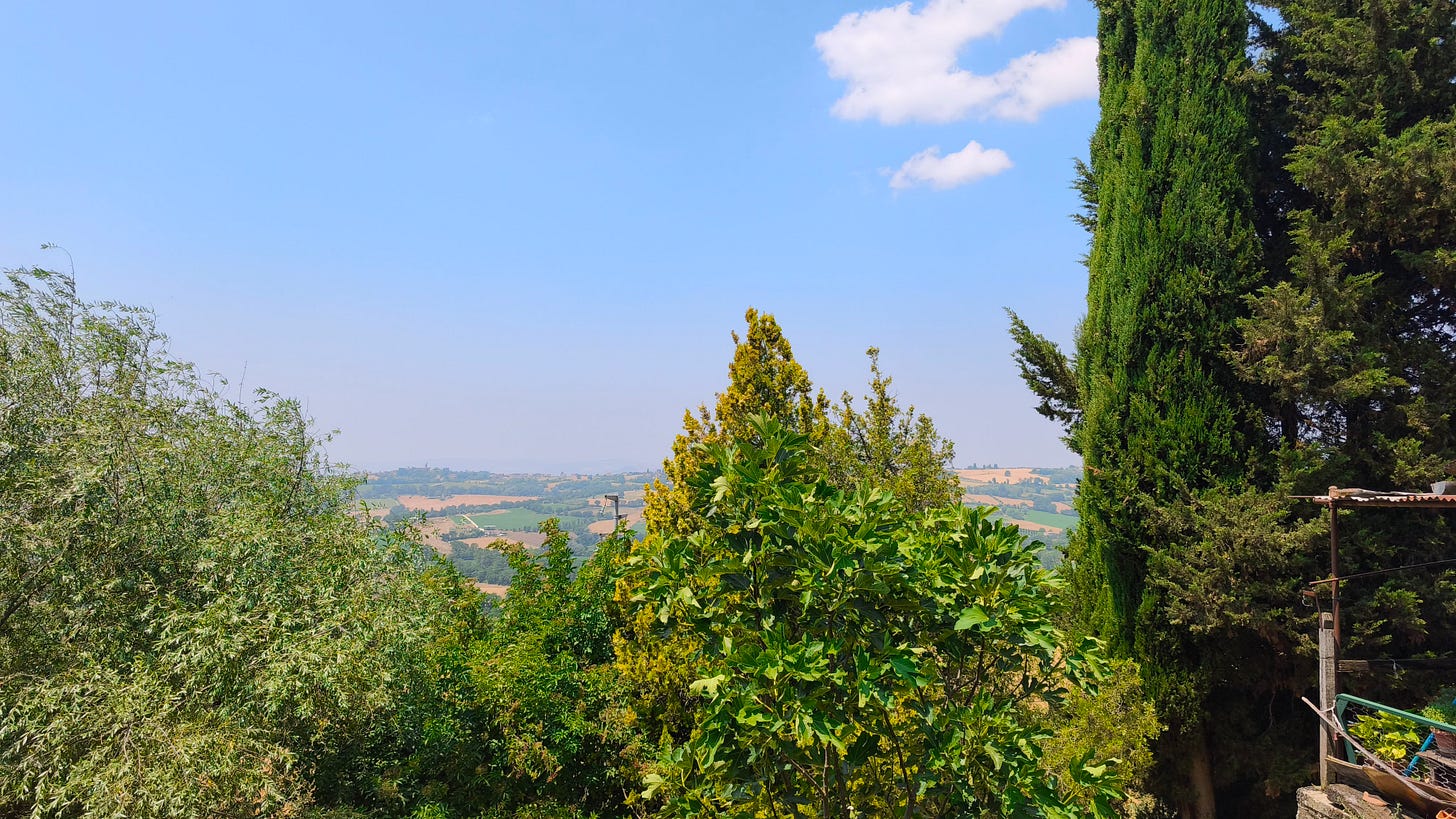Weekend reading
A few from the archive
This week will be a short post, because this weekend I’m in Italy for the wedding of some dear friends from London.
It has been beautiful, but it wasn’t easy getting here. On Thursday I had a long day which started at 5am, and I arrived at the venue at 8:30pm. This involved an early flight from London, a series of sudden changes of plan in Rome, and a very sweaty trek across the city. Some new friends, other guests of the wedding, were kind enough to give me a ride to the venue, saving me an expensive and exhausting train and cab ride.
The ceremony was yesterday. It was wonderful. There were a mix of Jewish, Buddhist, and Yoga rituals. And the vows were heartbreakingly beautiful.
But it was also sweltering. A few hours later, after dancing, cake, and fireworks, people were jumping into the pool, some in dresses and the men in their boxers. “Absolutely not,” a new friend said, and I agreed. But after the few dozen people in the pool chanted his name for about ten seconds he began to strip, and when they chanted mine I did the same. It felt amazing.
I feel grateful to be here, and grateful today to be relaxing. I’ve had some great conversations about Neither/Nor with some amazing people from different walks of life — a founder, a therapist, a biologist, an economist, and more.
I’ve kept up the 1,000 words per day that I wrote about last week, and a mildly truncated version of my morning pages. I’m reading Thought and Language (published 1962), a colletion of Lev Vygotsky’s writings on the topic. It’s a mindblowing book, about which I’ll write more later.
But today I thought I’d at least post to say hello today, so as not to remain entirely silent.
It also seems to me that the rudest word, the rudest letter are still more benign, more decent than silence. Those who remain silent are almost always lacking in delicacy and courtesy of the heart. Silence is an objection; swallowing things leads of necessity to a bad character — it even upsets the stomach. All who remain silent are dyspeptic.
Nietzsche, The Dawn (1881)
If you’re looking for more substantial reading, here are a few from the archive that you may have missed. The first is on the Taoist concept of spontaneous action. The second is on the relationship between naming and desire. And the third is about whether opposites really exist in the Platonic sense, summarizing Nietzsche’s systematic attack on the dichotomy of “good and evil.”
All best,
Bryan


